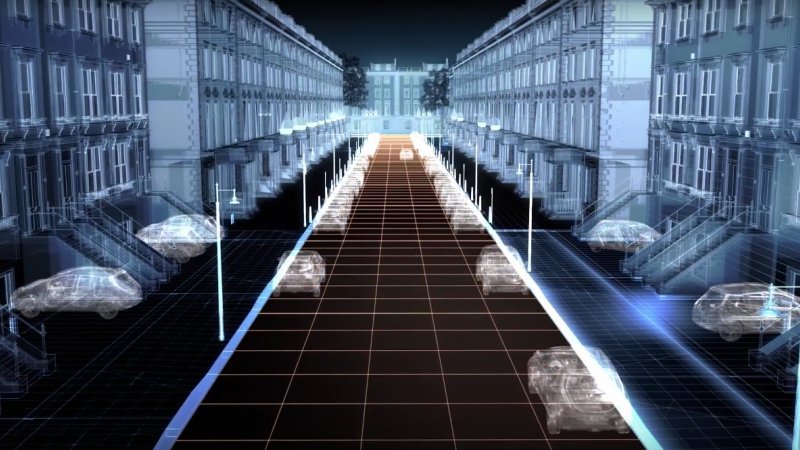In Nissan's Future, Your Car Will Roam the Night, Charging

In the years to come, we will all be driving Nissan Leafs, of course. Renewable energy will be ubiquitous, coming from solar, wind and wave power. There'll be so much of it that it will be free. Our cars won't simply consume energy, though. They'll be used to store and distribute energy, taking pressure off the grid, maximizing efficiency. Wireless charging will be available on the street. While you sleep, your Leaf will autonomously travel to and park itself in an inductive charging parking spot. It knows where they are, because everything is connected. Everything. When it's fully charged, it will leave the space, freeing it up for another car to charge.
In the morning, the car can supply power to your home, and your connected coffee pot will draw electricity from your connected car so you can wake up to a steamy cup of futuristic joe. Your house will also have stationary energy storage in the form of recycled Nissan Leaf batteries that have been retired from automotive use, but still have plenty of capacity left for other purposes.
In the future, you'll drive to work, and instead of parking on the street or in a garage you'll drive directly into your office! Once you're dropped of at your (presumably connected) desk, your Leaf will either go off on its own to join other Leafs to charge, or it will stay with you to power your office. Gas stations will be torn down, parks will be installed in their place and everything will be awesome (and connected!).
In all seriousness, it's a more imaginative scene than the more obvious one, where gas stations still exist, but provide mega-fast charging for electric vehicles. With proper planning and widespread adoption of vehicle autonomy, vehicle-to-grid technology and connected, well, everything, the future could be a nice place to live. If it has the aesthetic architectural design firm Foster + Partners lent to the video, all the better.
Related News


